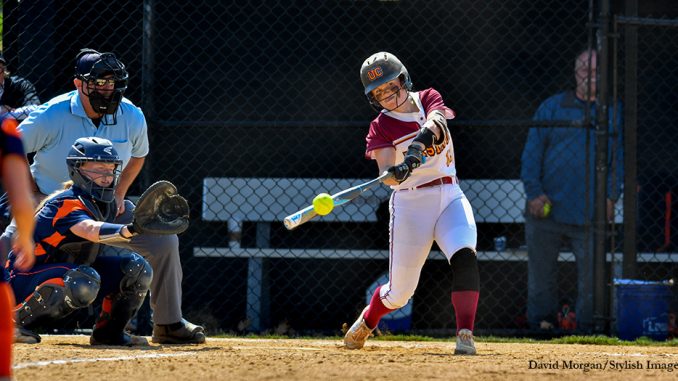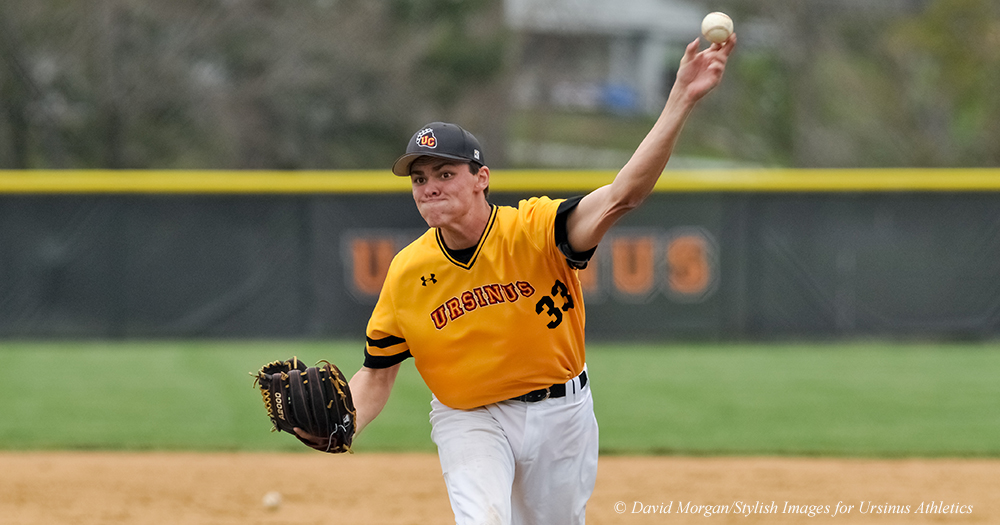
Griffin Banks, grbanks@ursinus.edu

“Fantasy football gives us something. Baseball doesn’t necessarily give us a future right now. It’s an easy segue for me to talk with people. It’s a good way to keep us connected. It definitely means a lot more than it did.” – Thomas Pancheri
The men of New 306 love three things above all else; beer pong, Cobra Kai, and fantasy football. Every student in the suite is a sophomore Ursinus College baseball player. In the spring of 2020 these boys were faced with the same impossible challenge that the world was, the COVID-19 global pandemic. In a matter of weeks, one of the key pillars of their collegiate life was ripped away from them. The baseball season was cancelled, and young men who would have spent the spring running across freshly cut grass and red clay were suddenly confined to their homes. Their story was the same as nearly all collegiate and professional athletes’. For the first time in decades, a spring and summer went by with vacant fields and empty bleachers. The friendly spirit of competition and the grand old tradition of brotherhood atrophied. Many months later, it would resurface in a far different form. No longer would it be expressed through the swing of a bat or the thud of a ball hitting mitt, but instead through typing on keyboards and swiping on smartphones.
In September, football returned to the sports world. After months of scrambling and conjecture, the sport returned almost exactly as it had always been. Sure, there wasn’t a preseason, and sure, at first there weren’t fans, but football had returned. A crucial symbol of American life was back. The return of football also marked the return of fantasy football, a virtual competition wherein players serve as general managers of their own teams.
It began in September in a common room. The draft went on just as it had the year prior, albeit now in a socially distanced fashion. Current points leader Mason Banks said, “It was solid. Unfortunately, Pancheri had the first pick and is now last in the league. That’s how it goes.” From there, the competition was on, and it hasn’t stopped since. Sundays aren’t spent in a church pew, they’re spent on Raymour and Flanagan recliners. The men of 306 sit huddled around the TV, transfixed on the flat screen TV in front of them with their smartphones gripped tightly in their hands. Monday nights, not Friday or Saturday, are the loudest in the suite. The men of 306 only know how to enjoy Monday night football one way, loudly. Football jerseys are adorned, an insane amount of Domino’s pizza is ordered, and the place erupts with cheers and jeers. For these men, fantasy football isn’t just about Sundays and Mondays, it’s a lifestyle. Trades are agonized over, vigorously argued and debated. Smack talk is their mother tongue, with insults and jabs thrown about on a daily basis. Nick Diaz described this culture of good-natured ribbing as “Very competitive. There’s lots of smack talk. Everything is in good fun, though. It definitely gets competitive every Sunday. You’ll always find us checking our phones and checking our teams.”
When asked to describe the dynamic of the fantasy league Thomas Pancheri replied, “pretty toxic,” with a cheerful, maniacal laugh. John Wagner concurred, yet also described it as “loving.” Wagner elaborated, “We help people who are bad in fantasy football. We try not to screw them over in a trade.” Where once upon a time these men would bond in the dugout or out on the field, they come together now through their phones and computers when gathering together physically is not an option.
As of yet, there is no official word on what the 2021 baseball season will look like, or if there will even be a season to begin with. With their future in doubt, the men of 306 cling to fantasy football as an outlet for their athletic frustration. Fantasy football allows them to be the sportsmen they are deep down inside. In conclusion, as Nick Diaz puts it, “We use it as a way to stay competitive amongst ourselves, even though it’s a different sport. It lets us take our minds off the things that are indefinite or in doubt.”
